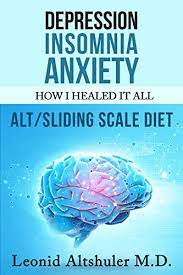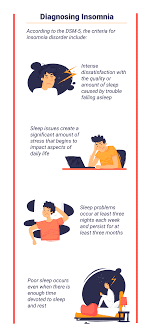Understanding the Connection between Depression and Insomnia
Depression and insomnia often go hand in hand, creating a vicious cycle that can be challenging to break. Many individuals with depression experience difficulty falling asleep, staying asleep, or both. Conversely, chronic insomnia can also increase the risk of developing depression.
Depression is a mental health disorder characterized by persistent feelings of sadness, hopelessness, and a loss of interest in activities. It affects millions of people worldwide and can significantly impact one’s quality of life. Insomnia, on the other hand, refers to difficulty sleeping or maintaining restful sleep.
The Relationship between Depression and Insomnia
The connection between depression and insomnia is complex and multifaceted. While it may be difficult to determine which condition comes first, they often exacerbate each other, leading to a vicious cycle.
Depression can disrupt sleep patterns by causing racing thoughts, anxiety, or excessive worrying at night. The mind becomes restless, making it challenging to relax and fall asleep. Additionally, individuals with depression may experience early morning awakening or find themselves waking up multiple times throughout the night.
On the other hand, chronic insomnia can contribute to the development of depression. Sleep deprivation affects mood regulation and emotional well-being. Lack of sleep impairs cognitive function, increases irritability, and decreases resilience to stressors – all factors that can contribute to depressive symptoms.
Treating Depression-Related Insomnia
Addressing both depression and insomnia simultaneously is crucial for effective treatment. Here are some strategies that can help:
- Seek professional help: If you suspect you have symptoms of depression or insomnia, it is essential to consult with a healthcare professional. They can provide an accurate diagnosis and recommend appropriate treatment options.
- Therapy: Cognitive-behavioral therapy for insomnia (CBT-I) is a widely recognized therapy that focuses on changing behaviors and thoughts associated with sleep difficulties. It can be effective in treating both insomnia and depression.
- Medication: In some cases, medication may be prescribed to manage symptoms of depression or insomnia. It is important to work closely with a healthcare professional to find the right medication and dosage for your specific situation.
- Lifestyle changes: Adopting healthy sleep habits, such as maintaining a consistent sleep schedule, creating a relaxing bedtime routine, and avoiding stimulants like caffeine or electronics before bed, can significantly improve sleep quality.
- Self-care: Engaging in activities that promote overall well-being, such as regular exercise, practicing relaxation techniques (e.g., deep breathing or meditation), and seeking support from loved ones, can help alleviate symptoms of both depression and insomnia.
The Importance of Seeking Support
If you are struggling with depression-related insomnia, remember that you are not alone. Reach out to friends, family members, or support groups who can provide understanding and encouragement during this challenging time. Remember that seeking professional help is vital for proper diagnosis and personalized treatment.
By addressing both depression and insomnia comprehensively, you can break the cycle and improve your overall well-being. With the right support and treatment strategies in place, there is hope for better sleep quality and improved mental health.
Understanding the Sleepless Nights: Frequently Asked Questions About Depression-Related Insomnia
- Why does depression give you insomnia?
- What to do when can’t sleep in depression?
- What mental health issues cause insomnia?
- Is insomnia a symptom of depression or anxiety?
- Is insomnia a side effect of depression?
Why does depression give you insomnia?
Depression can contribute to insomnia due to the complex interplay between emotional and physiological factors. The persistent feelings of sadness, anxiety, and hopelessness associated with depression can lead to racing thoughts and an inability to relax, making it difficult to fall asleep. Additionally, the disruption in the brain’s chemical balance caused by depression can affect sleep regulation and disrupt the sleep-wake cycle. The resulting insomnia further exacerbates depressive symptoms, creating a vicious cycle where lack of sleep impairs mood regulation and emotional well-being. It is essential to address both depression and insomnia simultaneously for effective treatment and improved overall well-being.
What to do when can’t sleep in depression?
When struggling with insomnia caused by depression, it’s important to take proactive steps to improve your sleep. Firstly, establishing a consistent sleep schedule can be beneficial. Try to go to bed and wake up at the same time every day, even on weekends. Creating a relaxing bedtime routine can also help signal your body that it’s time to sleep. Engaging in activities such as reading a book, taking a warm bath, or practicing relaxation techniques like deep breathing or meditation can promote relaxation. It’s also crucial to create a comfortable sleep environment by ensuring your bedroom is dark, quiet, and at a comfortable temperature. Avoiding stimulating activities and substances like caffeine or electronics before bed is essential as well. If these strategies don’t bring relief, seeking professional help from a healthcare provider or therapist who specializes in sleep disorders and mental health is highly recommended. They can provide personalized guidance and potentially recommend therapies such as cognitive-behavioral therapy for insomnia (CBT-I) or medication if necessary. Remember that addressing both depression and insomnia together is crucial for overall well-being and quality of life.
What mental health issues cause insomnia?
Insomnia can be caused by various mental health issues, including depression, anxiety disorders, post-traumatic stress disorder (PTSD), bipolar disorder, and obsessive-compulsive disorder (OCD). These conditions often disrupt the normal sleep-wake cycle and contribute to difficulties falling asleep or staying asleep. Depression, in particular, is closely linked to insomnia, as feelings of sadness, hopelessness, and anxiety can make it challenging to relax and quiet the mind at night. It is essential to address both the mental health issue and the insomnia symptoms to effectively improve sleep quality and overall well-being. Seeking professional help is crucial in identifying the underlying cause and developing a personalized treatment plan.
Is insomnia a symptom of depression or anxiety?
Insomnia can be both a symptom of depression and anxiety. It is quite common for individuals experiencing depression or anxiety to have difficulty falling asleep, staying asleep, or experiencing non-restorative sleep. The racing thoughts, worry, and emotional distress associated with these mental health conditions can make it challenging to relax and achieve restful sleep. Conversely, chronic insomnia can also contribute to the development or worsening of depression or anxiety symptoms. The relationship between insomnia, depression, and anxiety is complex and interconnected, highlighting the importance of addressing all aspects of mental health for effective treatment. If you are experiencing sleep disturbances alongside symptoms of depression or anxiety, it is crucial to seek professional help for an accurate diagnosis and appropriate treatment options.
Is insomnia a side effect of depression?
Yes, insomnia can be a side effect of depression. Many individuals with depression experience difficulties falling asleep, staying asleep, or both. The symptoms of depression, such as racing thoughts, anxiety, and excessive worrying, can disrupt sleep patterns and make it challenging to relax and fall asleep. Additionally, depression can cause early morning awakening or frequent awakenings throughout the night. Insomnia further worsens the symptoms of depression as sleep deprivation affects mood regulation and emotional well-being. Addressing both depression and insomnia is crucial for effective treatment and improving overall well-being. Seeking professional help is recommended to accurately diagnose and develop a personalized treatment plan.



